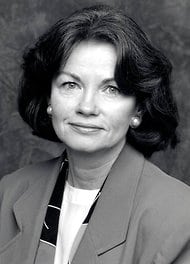The Passing of Two Important Feminists
January 6, 2013
 The first, Gerda Lerner, feminist and historian died at 92 years of age.
The first, Gerda Lerner, feminist and historian died at 92 years of age.
The New York Times – Her death was confirmed by Steve J. Stern, a history professor and friend at the University of Wisconsin-Madison, where Dr. Lerner had taught for many years.
In the mid-1960s, armed with a doctorate in history from Columbia University and a dissertation on two abolitionist sisters from South Carolina, Dr. Lerner entered an academic world in which women’s history scarcely existed. The number of historians interested in the subject, she told The New York Times in 1973, “could have fit into a telephone booth.”
“In my courses, the teachers told me about a world in which ostensibly one-half the human race is doing everything significant and the other half doesn’t exist,” Dr. Lerner told The Chicago Tribune in 1993. “I asked myself how this checked against my own life experience. ‘This is garbage; this is not the world in which I have lived,’ I said.”
That picture changed rapidly, in large part because of her efforts while teaching at Sarah Lawrence College in the early 1970s. In creating a graduate program there, Dr. Lerner set about trying to establish women’s history as a respected academic discipline and to raising the status of women in the historical profession. She also began gathering and publishing the primary source material — diaries, letters, speeches and so on — that would allow historians to reconstruct the lives of women.
“She made it happen,” said Alice Kessler-Harris, a history professor at Columbia. “She established women’s history as not just a valid but a central area of scholarship. If you look at any library today, you will see hundreds of books on the subject.”
 The second, Catherine, O’Neill, was a advocate for women and children.
The second, Catherine, O’Neill, was a advocate for women and children.
The New York Times – Catherine O’Neill, whose travels with the International Rescue Committee to refugee camps led her, along with the actress Liv Ullmann and others, to found the Women’s Commission for Refugee Women and Children, died Wednesday in Los Angeles. She was 70.
The cause was complications of cancer, her husband, the writer Richard Reeves, said.
Ms. O’Neill, who served on the board of the rescue committee, an aid organization that responds to humanitarian crises, had a professional career that included stops in the private, public and charitable sectors. In the 1970s she ran for the State Senate in California and for secretary of state, and she was the finance director for Gov. Jerry Brown’s 1976 presidential campaign.
Ms. O’Neill was the first chairwoman of the commission for women and children, now known as the Women’s Refugee Commission. It was founded in 1989 after she, Ms. Ullmann and others visited camps in Pakistan, Thailand and elsewhere and found, especially in places where war had driven people from their homes, that a special agency was needed, under the umbrella of the International Rescue Committee, to advocate for displaced women and families.
They saw, Mr. Reeves said, that in many camps “the system was run by men and geared to caring for the men.”
“Young men of fighting age were fed first, then the boy children, because they’d be fighters in the future, then the old men and then the women,” he said.
The Women’s Refugee Commission now has a full-time staff of 25 with headquarters in New York. Its advocacy focuses on gender-based violence, migrant rights, sexual and reproductive health, the needs of adolescent girls and other issues.
Catherine Elizabeth Vesey was born in Queens on July 17, 1942. Her parents were immigrants from Ireland. Her father, Patrick Vesey, became a New York City subway conductor; her mother, the former Bridget Ruddy, was a cafeteria worker in city schools.
